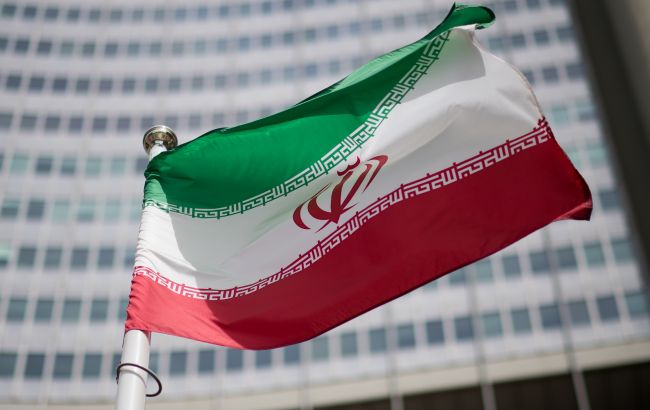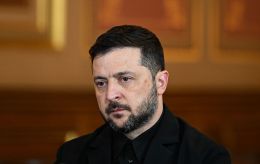Iran launches satellites on rocket, criticized over Tehran's ballistic missile program
 Iran launches 3 satellites (Getty Images)
Iran launches 3 satellites (Getty Images)
Iran state TV announced on Sunday that the country successfully launched three satellites into space using a rocket the West is concerned about as it could be connected to Tehran's ballistic missile development. Previously, Iran failed several times while launching satellites, according to AP News and Al Jazeera.
Iranian TV released footage of the nighttime launch of the Simorgh rocket at the Imam Khomeini Spaceport in Semnan province. The launched satellites were named Mahda, Kayhan-2, and Hatef-1, with Mahda described as a research satellite, and Kayhan and Hatef as nanosatellites, weighing less than 10kg, focused on geopositioning and communication. They were launched into a minimum orbit of 450km (280 miles).
Despite facing five consecutive failures, the Simorgh program proceeded with this launch. The video revealed that the rocket had the Farsi slogan "We Can", presumably hinting at previous setbacks. The Simorgh, a two-stage, liquid-fueled rocket, is designed to place satellites into low Earth orbit, according to Iran.
Western concerns
The U.S. and European countries, including France, Germany, and the United Kingdom, have condemned earlier Iran's satellite launches, expressing concerns about the development of long-range ballistic missiles. The U.S. intelligence is concerned that Iran's satellite launch technology could expedite the development of intercontinental ballistic missiles.
Under former President Hassan Rouhani, Iran had slowed its space program, but under the current President Ebrahim Raisi, the program has advanced.
Iran maintains the largest ballistic missile arsenal in the Middle East, partly because of the world's blockade from other weapon systems through decades of sanctions and other measures.
Mideast escalating tensions
This launch happened amid increased tensions in the Middle East. Israel's hot war with Hamas in the Gaza Strip raises concerns about a potential regional conflict.
Even though Iran hasn't directly participated in the conflict, internal pressures have mounted after a recent Islamic State suicide bombing and attacks by proxy groups like Yemen's Houthi rebels.
A recent attack in Jordan near the Syrian border, claimed by Iranian-backed Iraqi militias, resulted in the death of three U.S. troops while many were injured. The attack marked the first death of Americans in a hostile attack since Israel and Hamas went to war.
"While we are still gathering the facts of this attack, we know it was carried out by radical Iran-backed militant groups operating in Syria and Iraq," U.S. President Joe Biden stated. Now Biden prepares decisive response to Iran after U.S. soldiers' deaths.

